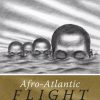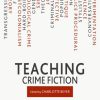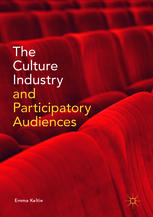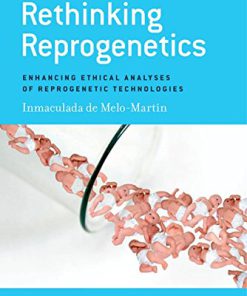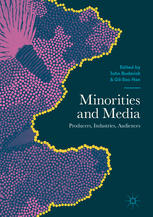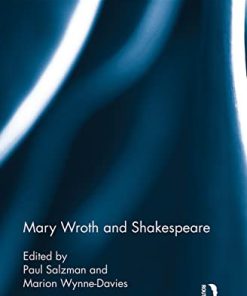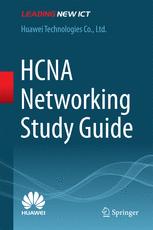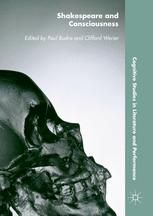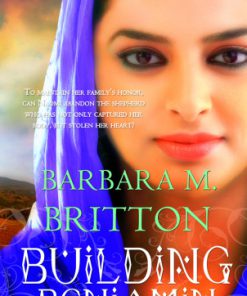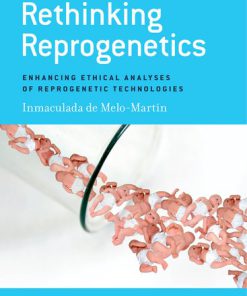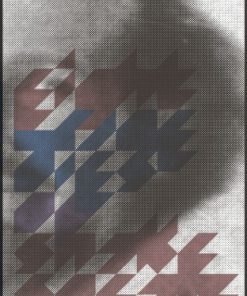Rethinking Shakespeare Source Study Audiences Authors and Digital Technologies 1st Edition by Dennis Austin Britton,Melissa Walter ISBN 1138123072 978-1138123076
$50.00 Original price was: $50.00.$25.00Current price is: $25.00.
Rethinking Shakespeare Source Study Audiences Authors and Digital Technologies 1st Edition by Dennis Austin Britton, Melissa Walter – Ebook PDF Instant Download/Delivery: 1138123072, 978-1138123076
Full download Rethinking Shakespeare Source Study Audiences Authors and Digital Technologies 1st Edition after payment
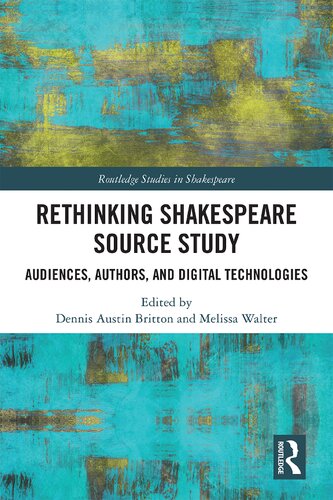
Product details:
ISBN 10: 1138123072
ISBN 13: 978-1138123076
Author: Dennis Austin Britton, Melissa Walter
This book asks new questions about how and why Shakespeare engages with source material, and about what should be counted as sources in Shakespeare studies. The essays demonstrate that source study remains an indispensable mode of inquiry for understanding Shakespeare, his authorship and audiences, and early modern gender, racial, and class relations, as well as for considering how new technologies have and will continue to redefine our understanding of the materials Shakespeare used to compose his plays. Although source study has been used in the past to construct a conservative view of Shakespeare and his genius, the volume argues that a rethought Shakespearean source study provides opportunities to examine models and practices of cultural exchange and memory, and to value specific cultures and difference. Informed by contemporary approaches to literature and culture, the essays revise conceptions of sources and intertextuality to include terms like “haunting,” “sustainability,” “microscopic sources,” “contamination,” “fragmentary circulation” and “cultural conservation.” They maintain an awareness of the heterogeneity of cultures along lines of class, religious affiliation, and race, seeking to enhance the opportunity to register diverse ideas and frameworks imported from foreign material and distant sources. The volume not only examines print culture, but also material culture, theatrical paradigms, generic assumptions, and oral narratives. It considers how digital technologies alter how we find sources and see connections among texts. This book asserts that how critics assess and acknowledge Shakespeare’s sources remains interpretively and politically significant; source study and its legacy continues to shape the image of Shakespeare and his authorship. The collection will be valuable to those interested in the relationships between Shakespeare’s work and other texts, those seeking to understand how the legacy of source study has shaped Shakespeare as a cultural phenomenon, and those studying source study, early modern authorship, implications of digital tools in early modern studies, and early modern literary culture.
Table of contents:
Part One: Source Study, Sustainability, and Cultural Diversity
-
Chapter 1: Toward a Sustainable Source Study – Lori Humphrey Newcomb
-
Chapter 2: Contaminatio, Race, and Pity in Othello – Dennis Austin Britton
-
Chapter 3: Translating Plautus to Bohemia: Ruzante, Ludovico, and The Winter’s Tale – Jane Tylus
-
Chapter 4: Veiled Revenants and the Risks of Hospitality: Euripides’ Alcestis, the Renaissance Novella, and Shakespeare’s Much Ado About Nothing – Susanne L. Wofford
Part Two: Sources and Audiences
-
Chapter 5: Traces of Knowledge: Microsource Study in Cymbeline and Lear – Meredith Beales
-
Chapter 6: Reconstructing Holinshed: History and Romance in Henry VIII – Dimitry Senyshyn
-
Chapter 7: Shakespeare’s Transformative Art: Theatrical Paradigms as Sources in All’s Well that Ends Well and Macbeth – David Kay
Part Three: Authorship and Transmission
-
Chapter 8: Diachronic and Synchronic: Two Problems of Textual Relations in The Comedy of Errors – Kent Cartwright
-
Chapter 9: Greek Sacrifice in Shakespeare’s Rome: Titus Andronicus and Iphigenia in Aulis – Penelope Meyers Usher
-
Chapter 10: Multiple Materials and Motives in Two Gentlemen of Verona – Meredith Skura
-
Chapter 11: The Curious Case of Mr. William Shakespeare and the Red Herring: Twelfth Night and its Sources – Mark Houlahan
Part Four: Source Study in the Digital Age
-
Chapter 12: Shakespeare Source Study in the Age of Google: Revisiting Greenblatt’s Elephant’s and Horatio’s Ground – Brett D. Hirsch and Laurie Johnson
-
Chapter 13: “Tangled in a net”: Shakespeare the Adaptor/Shakespeare the Source – Janelle Jenstad
-
Chapter 14: Lost Plays and Source Study – David McInnis
People also search for:
rethinking shakespeare source
are shakespeare’s themes still relevant today
are shakespeare’s plays still relevant today
did shakespeare read plato
did shakespeare really write macbeth
Tags: Dennis Austin Britton, Melissa Walter, Rethinking Shakespeare, Source Study Audiences, Authors and Digital Technologies
You may also like…
Politics & Philosophy - Government & Politics
The Culture Industry and Participatory Audiences 1st Edition Emma Keltie (Auth.)
Politics & Philosophy
Uncategorized
Computers - Networking
HCNA Networking Study Guide 1st Edition Huawei Technologies Co.
Fiction - Historical
Building Benjamin Naomi s Journey 1st Edition Britton 1611169771 9781611169775
Poetry - American Poetry
Eight tragedies of Shakespeare a Marxist study New Edition Eagleton


